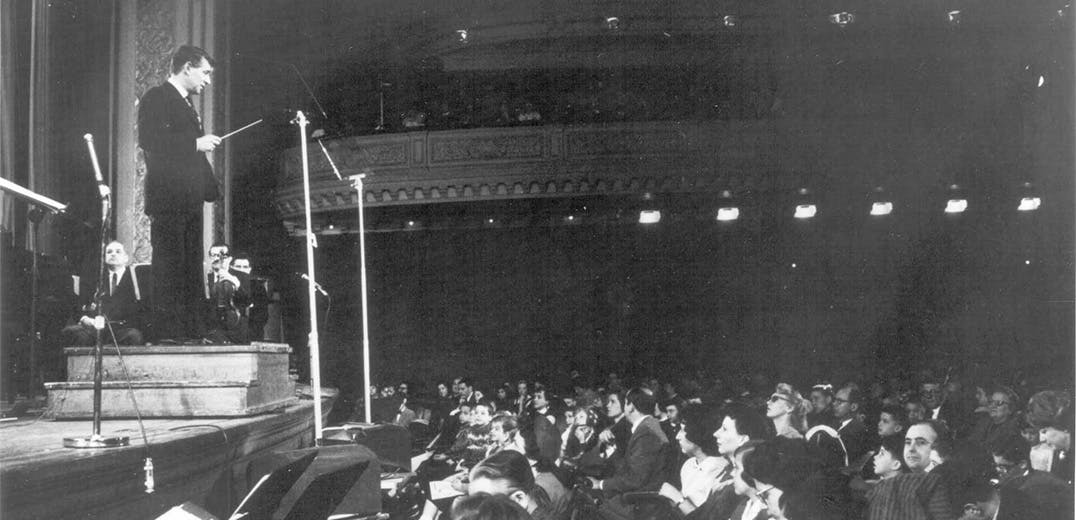Carnegie Hall+ Celebrates 100 Years of Young People’s Concerts
Carnegie Hall+ celebrates 100 years of the New York Philharmonic’s beloved Young People’s Concerts, the groundbreaking education program that made classical music accessible to fans of all ages. The channel’s historic offerings of Bernstein’s pioneering concerts, nationally televised live from Carnegie Hall starting in 1958, are part of its extensive Leonard Bernstein collection, which features new YPCs each month.
Young People’s Concerts Library on Carnegie Hall+
Featured Programs
Thus Spake Richard Strauss
Three years after Strauss’s tone poem Thus Spake Zarathustra found Hollywood fame in Stanley Kubrick’s 2001: A Space Odyssey, Leonard Bernstein explores the work in depth at this Young People’s Concert with the New York Philharmonic.
Forever Beethoven
Bernstein and the New York Philharmonic celebrate Beethoven’s legacy with the first movement from his Fifth Symphony and Leonore Overture No. 3. Joseph Kalichstein is also soloist in the Fourth Piano Concerto, led by Paul Capolongo.
Who Is Gustav Mahler?
With excerpts from the Fourth Symphony that feature soprano Reri Grist and Das Lied von der Erde, Bernstein advocates for Mahler at a time when the composer’s place in the pantheon was less assured than it is now.
What Makes Music Symphonic?
Originally broadcast live on CBS, this episode features the New York Philharmonic performing Tchaikovsky’s Romeo and Juliet, Mozart’s “Jupiter,” and Brahms’s Second Symphony at Carnegie Hall.
What is Impressionism?
Bernstein dives deep into “the most famous music ever written about the sea”: Debussy’s atmospheric and magical La mer.
Berlioz Takes a Trip
Bernstein presents “the first psychedelic symphony in history”: Berlioz’s Symphonie fantastique, which he calls “pretty spooky stuff.”
The Anatomy of a Symphony Orchestra
Bernstein dissects the resplendent orchestration of Respighi’s Pines of Rome and teaches listeners how to develop what he calls “X-ray hearing.”
Fidelio: A Celebration of Life
Beethoven’s only opera celebrates freedom and love with glorious music. After addressing some dramatic flaws, Bernstein showcases the work’s sublime musical highlights with the New York Philharmonic and a quartet of young soloists.
Subscribe to Carnegie Hall+ Today
Stream exceptional performances anytime, anywhere from the comfort of your home for just $7.99 a month. Discover Carnegie Hall+ for free by signing up for a seven-day free trial* on the Apple TV app or Prime Video Channels.























